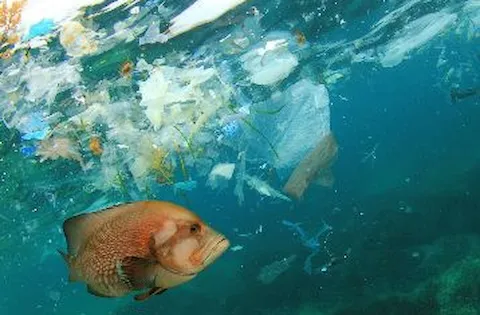IMO Sub-Committee on Pollution Prevention and Response (PPR 8)
The 8th session of the IMO’s Sub-Committee on Pollution Prevention and Response (PPR 8) was held remotely with a limited agenda from 22 to 26 March 2021. Due to current circumstances, there were no working groups at this session and further progress of the different items on the agenda will continue in correspondence groups reporting back to PPR 9 to be held in 2022.
Relevant for ship owners and managers as well as manufacturers of ballast water and sewage treatment systems.
Meeting highlights
- Agreement on a phased approach for regulating black carbon, starting with the development of recommendatory guidelines
- Generic entry for “Palm oil mill effluent (POME) technical oil” in the IBC Code
- Discussion of revised biofouling guidelines
- Discussion of amendments to MARPOL Annex IV and associated guidelines on sewage treatment requirements
Amendments to the IBC Code
A generic entry for “Palm oil mill effluent (POME) technical oil” was agreed on in order to facilitate the proper shipping of this product. POME is an effluent from the palm oil refining industry that is increasingly being used as feedstock in biofuel production. The entry will be included in the next MEPC.2/Circular as a Pollution Category X, implying that a prewash will be mandatory after unloading. The industry was encouraged to submit data to GESAMP/EHS for a more specific assessment and possibly more relaxed carriage requirements.
Biofouling
A proposal that in-water cleaning should only be conducted for microfouling and that macrofouling should be limited to cleaning in dry dock was challenged and will be further discussed in the correspondence group.
The correspondence group was re-established and instructed to continue the work on revising the biofouling guidelines and report back to PPR 9. The target completion year for the review of the biofouling guidelines was proposed to be extended to 2023.
Black carbon
The sub-committee invited outcomes of additional black carbon measurement trials using different types of VLSFOs to collect further information on the possible impact of fuel oil parameters, such as aromatic content, on black carbon emissions. The ISO was also invited to keep the IMO updated regarding its ongoing review of ISO 8217 and potential changes pertaining to black carbon formation.
PPR 8 agreed that consideration and implementation of regulatory options should take a phased approach. This would include the development of recommendatory guidelines on goal-based black carbon control measures. The target completion year for black carbon work was proposed to be extended to 2023.
Use and carriage of heavy fuel oil as fuel in Arctic waters
The sub-committee agreed that the guidelines on measures to reduce the risks of use and carriage of heavy fuel oil as fuel by ships in Arctic waters needs further consideration at PPR 9, with a view to approval at the subsequent meeting of the MEPC. The target date for completion of this activity was accordingly proposed to be extended to 2022.
Sewage treatment
The report of the correspondence group proposing draft amendments to MARPOL Annex IV and its associated guidelines was discussed. Some of the concerns raised included:
- Application to existing ships
- Use of grey water as a dilutant for sewage treatment plants (STP)
- Imposing of discharge requirements for stored STP effluents
- The potential for comminuting and disinfecting systems (CDS) becoming more widely used as a consequence of stricter requirements for STPs
The correspondence group was re-established to continue the work on revising MARPOL Annex IV and its associated guidelines. The target completion year was proposed to be extended to 2023.
Marine plastic litter
Due to time constraints, this agenda item was deferred to PPR 9.
Any other business
PPR 8 discussed standards for the verification of ballast water compliance monitoring devices (CMD), which may be used at commissioning testing, compliance testing by port state control or self-monitoring of ballast water treatment systems.
It was decided to establish a correspondence group tasked with preparing an updated draft protocol for verification of ballast water CMDs and report back to PPR 9.
Correspondence groups established
The following correspondence groups were established and will report back to PPR 9:
- Review of the biofouling guidelines
- Amendments to MARPOL Annex VI and its associated guidelines
- Development of a protocol for verification of ballast water compliance monitoring devices
Recommendations
As PPR is a sub-committee, all decisions concerning rules, regulations and dates are subject to further consideration and approval by the Marine Environment Protection Committee (MEPC).
DNV recommends that our customers monitor the outcome of MEPC 76 in June 2021 and of the correspondence groups established. Outcomes of additional black carbon measurement trials should be made available to the IMO for further consideration.
Contact
- For customers:
Direct Access to Technical Experts via My Services on Veracity. - Otherwise:
Use our office locator to find the nearest DNV office.
